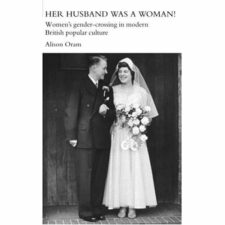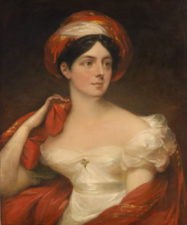Alice Hawkins was the leader of the women’s suffrage movement in Leicester. Born in 1863 to a working-class family, she left school and thirteen to work as a shoe machinist. In 1884, she married Alfred Hawkins and she went on to have six children. From her early years at work, she saw around her that women were paid less and had inferior working conditions. In response she joined the boot and shoe trade union to campaign for equal working conditions for women. She was fortunate to be supported in this by her employer, Equity shoe-factory, a worker’s cooperative. After years of trade union work, Alice became disillusioned, recognising that they were campaigning not for equal rights, but the rights of the male breadwinner.
In 1907, Alice attended her first meeting of the Women’s Social and Political Union (WSPU) in Hyde Park, before marching with them to the House of Commons on the same day to demand the vote for women. Her introduction to the work of the WSPU was quick; she was arrested and jailed that afternoon. She was to be jailed five more times over the following seven years for suffrage causes. Shortly after this, Alice invited Sylvia Pankhurst to speak in Leicester and the Leicester branch of the WSPU was formed. In it, she was supported by her husband Albert, a committed socialist and believer in women’s suffrage. On one occasion, when Alice was excluded from a meeting where Winston Churchill was speaking, Albert went in her place and asked why they didn’t secure the vote for women. He was quickly ejected from the meeting.
In 1908, Alice spoke at a mass rally in Hyde Park in front of 250,000 people. She also continued to campaign locally in her working-class community in Leicester. She ceased campaigning suffrage during the war, and women finally got suffrage in 1918. Alice continued to support the trade union and labour movement until her death in 1946.
Alice Hawkins is celebrated on the website: http://www.alicesuffragette.co.uk/index.html There they have information on her life, the women’s suffrage movement and memorabilia from her time as a suffragette.
Katie Barclay is currently working on Irish masculinity in the nineteenth century. She is a historian at Queen’s University, Belfast.

